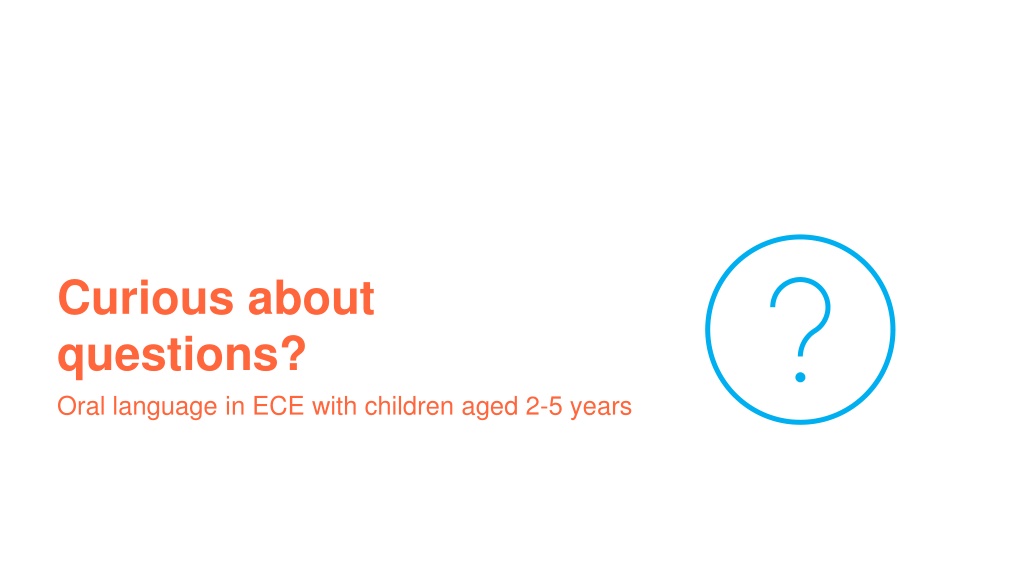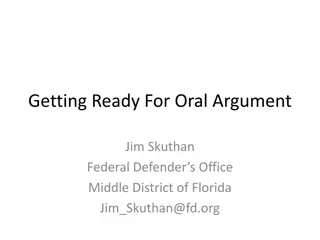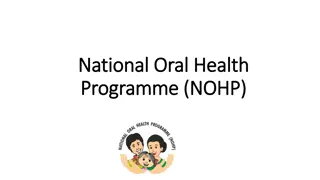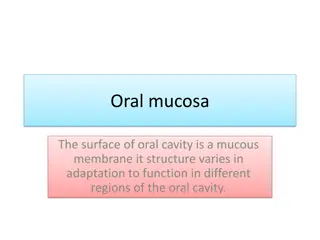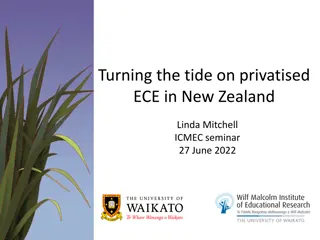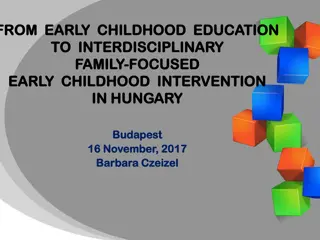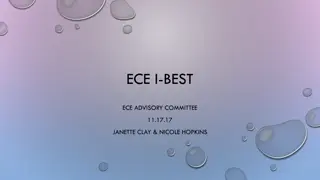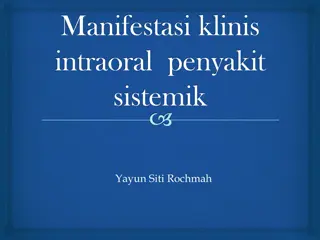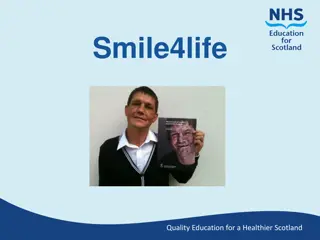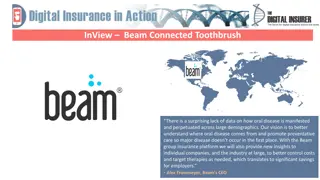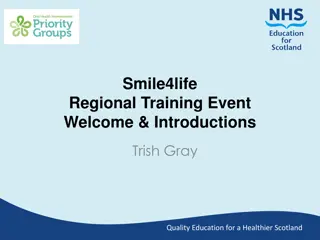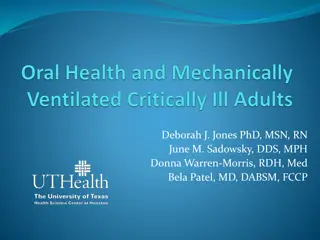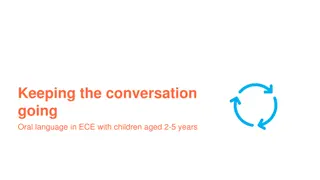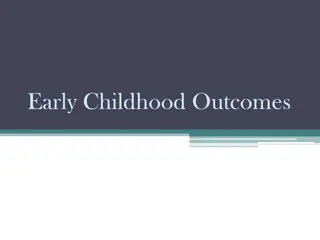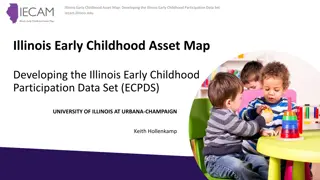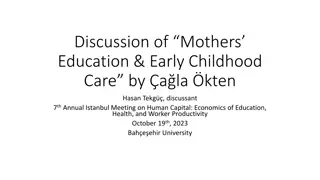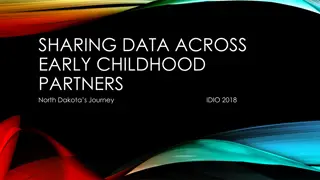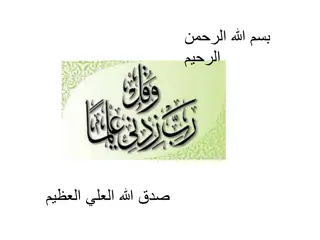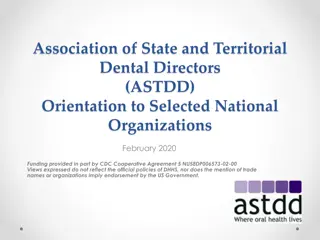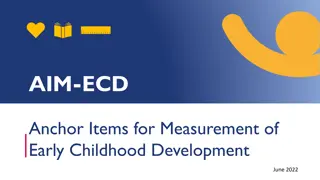Enhancing Oral Language Skills in Early Childhood Education (ECE)
Explore strategies and activities to foster oral language development in children aged 2-5 years within an ECE setting. Delve into the importance of questioning techniques, pausing strategies, and creating a supportive environment for rich conversations. Reflect on different types of questions, such as 'I wonder' questions, and how they can encourage children's engagement and curiosity in verbal interactions.
Download Presentation

Please find below an Image/Link to download the presentation.
The content on the website is provided AS IS for your information and personal use only. It may not be sold, licensed, or shared on other websites without obtaining consent from the author. Download presentation by click this link. If you encounter any issues during the download, it is possible that the publisher has removed the file from their server.
E N D
Presentation Transcript
Curious about questions? Oral language in ECE with children aged 2-5 years
Framing for your context complete before presenting To prepare for this session please: Add speaking notes to slide 4 about any observations you d like to share from or since the last session, feedback you may have received about pauses or supporting rich conversations with children, or recapping why you are focusing on oral language and what you aim to achieve. Email or print copies of Tip Sheet 2: Curious about questions? (mentioned on slide 4 and supporting the activities on slides 9, 10 and 11). Print or share copies of the activity sheet, Experiment with questioning on slide 10. Embed the following videos: Video 2.1 - Questioning on slide 6 Video 2.2 - I Wonder Questions on slide 7 Video 2.3 - Questions Within Interactions on slide 8 Add your setting s logo to the slides. 2
Agenda Follow up from last session (10 minutes) Questioning (9 minutes) Experimenting with questions (11 minutes) 3
Recap of creating spaces for childrens talk Oral language: What is it and why is it important? Balancing power Pausing Planning to experiment with pauses 4
Discuss At the end of the last session, you made a plan to experiment with pauses. Use the prompts to discuss your reflections with a partner: What happened when you intentionally used pausing as a strategy to encourage children s talk? Did different lengths support different children to contribute? How will your reflections influence your future practice? 5
Questioning Different types of questions Children can differentiate between a test question and an authentic question 6
I wonder questions Work to invite, rather than expect, a response Position educators as curious Reduce the likelihood of educators judging responses as right or wrong . 7
Questions are within interactions Research has shown that educators use three main question types in their interactions with children: Open and closed questions Wh questions I wonder questions The question category will depend on the interaction between the educator and child. 8
Pausing Play with pausing for different lengths of time (e.g. 3-5 seconds, 5-10 seconds) Use your knowledge of individual children to determine how long to pause for (e.g. some children may require a longer pause) Questioning Ask real questions you don t know the answer to Use an I wonder question Value and use children s ideas to collaboratively solve problems Ask questions that are actually open ended Role play How can you engage one of the children in the scenarios in a rich conversation? Scenarios Walking into the room in the morning, Mila says, I m so excited for tomorrow! In outdoor play, Luke s emptying the sand from a toy and asks, Did you know this is a tip truck? At snack time, Ronan tells you, Watermelon is the best fruit and I have three pieces. 9
Experiment with questioning Before our next session, experiment with using different questions! Use the prompts on this activity sheet to try using different questioning approaches. As you try the strategies, jot down your reflections to share at the next session. 10
Wrap up For more on what we ve covered today, Tip Sheet 2: Curious about questioning? is available from: https://e4l.org.au/oral-language-ece 11
